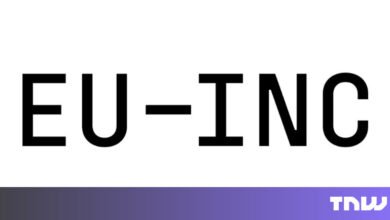Voi CEO Eyes Bolt’s Micromobility Business for Acquisition

▼ Summary
– Voi is considering acquiring Bolt’s micromobility division, though Bolt has not confirmed any sale plans.
– Voi’s CEO Fredrik Hjelm views Bolt primarily as a ride-hailing company, noting the challenges of excelling in multiple verticals like micromobility.
– Hjelm argues micromobility relies on local users prioritizing experience and affordability over super-app convenience, downplaying Bolt’s brand recognition.
– Bird’s co-CEO criticizes Bolt for using price as a loss leader in micromobility, while Voi, Bird, and Dott focus on data-driven operations for profitability.
– Voi and Bird have achieved adjusted EBITDA profitability, while Bolt’s micromobility financials remain undisclosed despite its broader $2.11B annual revenue.
Voi Technology’s CEO has expressed interest in acquiring Bolt’s micromobility division, marking a potential shakeup in Europe’s competitive shared transportation market. While Bolt remains tight-lipped about any possible sale, industry leaders are weighing in on the strategic challenges of operating across multiple mobility sectors.
Fredrik Hjelm, Voi’s chief executive, recently highlighted the complexities of running a successful micromobility business during a panel discussion in Brussels. “Micromobility requires specialized hardware expertise without benefiting from the network effects that boost ride-hailing or food delivery services,” he explained. His comments suggest Bolt might be spreading itself too thin across its various verticals, which include car rentals and grocery delivery alongside its core ride-hailing operations.
The debate intensified when Bird’s co-CEO Michael Washinushi criticized Bolt’s pricing strategy, calling it a “loss leader” approach. “Some companies flood markets with vehicles and compete on price alone,” Washinushi noted, contrasting this with operators like Bird and Voi that use data analytics to optimize fleet placement and operational efficiency. His remarks underscore the evolving sophistication of micromobility operations, where smart logistics now drive profitability.
Recent financial disclosures reveal why Voi might be looking to expand through acquisition. The Swedish company reported $17.9 million in adjusted EBITDA profits for 2023, while Bird, despite previous financial struggles, achieved $19 million in adjusted EBITDA profitability this year. Bolt’s micromobility performance remains unclear, though its parent company generated $2.11 billion in total revenue last November without disclosing profitability metrics.
When pressed for further comment about the potential acquisition, Hjelm offered a characteristically casual response, mentioning he’d “think about Bolt tomorrow” while attending a music event. This nonchalant attitude belies the serious strategic calculations behind such a move, which could significantly alter Europe’s mobility landscape if pursued.
Industry observers will be watching closely for any developments, particularly whether Bolt considers divesting its scooter and bike operations to focus on its more established services. The coming months may reveal whether this acquisition talk evolves into concrete negotiations or remains speculative industry chatter.
(Source: TechCrunch)





